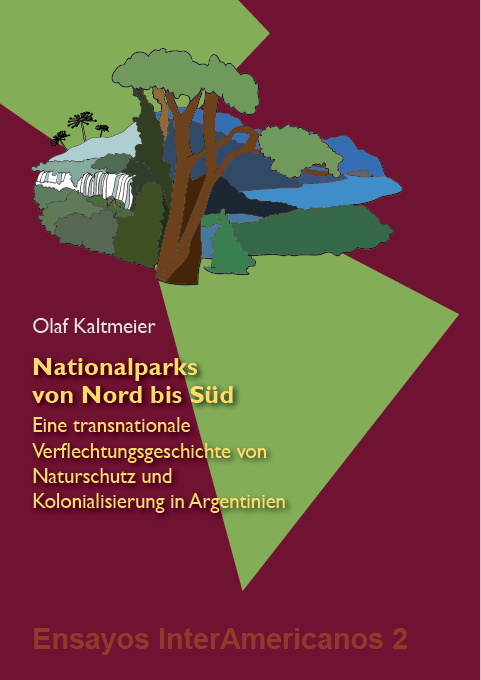Kaltmeier, Olaf. Nationalparks von Nord bis Süd: Eine transnationale Verflechtungsgeschichte von Naturschutz und Kolonialisierung in Argentinien. Bielefeld: Kipu-Verlag, 2020.
The establishment of national parks in Argentina—the first ones in Latin America—takes place in a transnational space of entanglements where ideas, imaginaries, people, biota, and artifacts circulate. Park concepts in Argentina are influenced by a wide range of different approaches from U.S.-American Park politics through French landscape architecture and Prussian sustainable forestry to international debates on nature conservation. While national parks are today regarded as hoards of wilderness, contemporary interpretation in the first half of the 20th century is quite more open. In Argentina, a position has prevailed that sees national parks as “real instruments of colonization.” Agricultural colonization and the expulsion of indigenous peoples, broad programs of urbanization, and touristification of landscape as well as the massive processes of biological colonization by salmon, roe deer, and Douglas fir are integral elements of Argentine park politics. Especially in the emblematic National Parks of Nahuel Huapi and Iguazú. In this context between conservation and colonization, the book explores the following question: How do National Parks operate? (Text by Olaf Kaltmeier)

This work is licensed under a Creative Commons Attribution-NonCommercial-NoDerivatives 4.0 International License.


